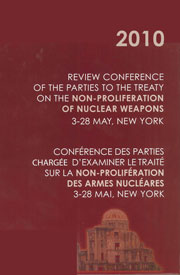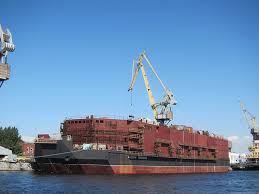
Blog
-
Geiger Readings for Aug 03, 2016
Ambient office = 75 nanosieverts per hourAmbient outside = 123 nanosieverts per hourSoil exposed to rain water = 119 nanosieverts per hourLemon from Central Market = 108 nanosieverts per hourTap water = 136 nanosieverts per hourFiltered water = 129 nanosieverts per hour -
Nuclear Reactors 393 – Chinese Is Violating International Trade Restrictions On Sale Of Nuclear Technology to Pakistan
I have blogged before about the fight going on over India’s membership in the Nuclear Suppliers Group. The U.S. wants India in the NSG to make it easier to do nuclear related business. China, a long time rival and sometimes enemy of India, is working to keep India out of the NSG. One of the ploys that China is using is to insist that Pakistan be admitted to the NSG if India is. There are long standing concerns about Pakistan selling nuclear weapons technology to non-nuclear nations such as Iran and North Korea that make Pakistani admission to the NSG very unlikely. China is pretending that it is neutral and thinks that the fair thing to do is to admit both or neither Pakistan and/or India to the NSG.
The U.N. Treaty on the Non-Proliferation of Nuclear Weapons (NPT) was opened for signatures in 1968. To date, one hundred and ninety on countries have signed the treaty. Only four member nations of the U.N. are not currently signatories. India, Pakistan, Israel and North Korea. “The NPT non-nuclear-weapon states agree never to acquire nuclear weapons and the NPT nuclear-weapon states in exchange agree to share the benefits of peaceful nuclear technology and to pursue nuclear disarmament aimed at the ultimate elimination of their nuclear arsenals”.[3]
The 2010 Review Conference for the Treaty on the Non-Proliferation of Nuclear Weapons clarified, modified and expanded provisions of the original treaty. The Conference “reaffirmed that new supply arrangements” for the transfer of nuclear materials and technology should require that the recipient accept “IAEA full-scope safeguards and international legally-binding commitments not to acquire nuclear weapons”.
The NSG requires that members abide by the provisions of the NPT and the 2010 Review Conference with respect international trade in nuclear technology. The U.S. really wants to sell nuclear technology to India. If they cannot get an Indian membership in the NSG, then they want a waiver that would authorize the U.S. to sell the technology to India in spite of the fact that India is not a member of the NSG.
China has economic, political and military reasons for wanting to deny nuclear technology to India while at the same time supplying nuclear technology to Pakistan. As a signatory of the NPT and a member of the NSG, China is prohibited from selling nuclear technology to Pakistan. However China signed a deal in 2013 to build the Chasma-3 nuclear power reactor in Pakistan. This is a clear violation of the NPT since Pakistan has not been granted an exemption under the NSG and Pakistan does not adhere to the standards of the IAEA.
In addition to breaking the rules of the NSG for the sale of peaceful nuclear technology, China has also been accused of breaking the Missile Technology Control Regime which prohibits the transfer of ballistic missile technology to “problematic” nations such as Pakistan because it has been transferring missile technology to Pakistan.
China benefits from belonging to international groups dedicated to the elimination of nuclear weapons but seems to view the obligations that are part of such memberships as optional requirements that can be ignored when other priorities dictate.
-
Geiger Readings for Aug 02, 2016
Latitude 47.704656 Longitude -122.318745Ambient office = 90 nanosieverts per hourAmbient outside = 91 nanosieverts per hourSoil exposed to rain water = 93 nanosieverts per hourPeach from Central Market = 83 nanosieverts per hourTap water = 100 nanosieverts per hourFiltered water = 73 nanosieverts per hour -
Nuclear Reactors 392 – Chinese Plans For Floating Nuclear Power Stations
I have blogged before about the Russian ambition to build floating nuclear power plants. The first Russian floating power station is called the Academician Lomonosov. It is scheduled to be completed in 2018 but has suffered repeated delays to date. No buyers have been announced for these new Russian power plants. These plants could be towed to places where power is needed but difficult to get from the grid like oil platforms at sea. They would also be useful for supplying remote costal communities.
China also has ambitions to build such plants. It was announced in 2014 that China and Russia had signed a contract to build floating nuclear power stations based on Russian nuclear technology. However, two Chinese companies have announced that they are working on such nuclear power stations. It is unclear what relationship their project has to the previous Chinese project with the Russians.
The China General Nuclear Power Group (CGHPG) and China National Nuclear Corporation (CNNC) are government owned companies involved in nuclear technology. They intended to develop the new floating nuclear power plants with domestic nuclear technology. China has a lot of oil platforms in the South China Sea which could benefit from such floating power sources. Chinese media has reported that there are plans to deploy at least twenty of these floating reactors to the South China Sea to support oil drilling. However, neither the CGHPG nor the CNNC have made any mention of the South China Sea with respect to the new floating power plants they are working on.
One serious problem for China with respect to its plans to deploy floating nuclear power platforms to the South China Sea is the fact that there are major international tensions there. Six different nations including China are all making claims to overlapping portions of the South China Sea.
China’s claim to a large section of the Sea have been challenged before a U.N. arbitration board by the Philippines based on the United Nations Convention on the Law of the Sea. The board ruled on July 12, 2016 in favor of the Philippines. Unfortunately, China announced before the ruling that they denied that the U.N. board had the power to rule on their territorial claim.
China has been building artificial islands in the Sea and threatening to deploy nuclear armed submarines on regular patrols there. The U.S. has been sailing U.S. naval vessels around the area as a response to China’s aggressive statements and actions. The Straits of Mallorca are a major international shipping corridor in the area. Chinese control of the Straits could interfere with international commerce.
Introducing floating nuclear power platforms into the South China Sea could be a recipe for disaster. If the platforms were sabotaged, deliberately targeted or accidentally hit during a conflict, the release of nuclear materials into the atmosphere and ocean would be extremely dangerous to the ecosystem and the people living in the area.
China is intent on developing its own energy sources including oil, gas and nuclear power plants that do not depend on foreign resources and technologies. The South China Sea might not be the best place these days to advance that agenda.
Russian Academician Lomosov:
-
Geiger Readings for Aug 01, 2016
Ambient office = 80 nanosieverts per hourAmbient outside = 144 nanosieverts per hourSoil exposed to rain water = 134 nanosieverts per hourMango from Central Market = 75 nanosieverts per hourTap water = 93 nanosieverts per hourFiltered water = 79 nanosieverts per hour -
Geiger Readings for July 31, 2016
Ambient office = 80 nanosieverts per hourAmbient outside = 144 nanosieverts per hourSoil exposed to rain water = 134 nanosieverts per hourYellow bell pepper from Central Market = 75 nanosieverts per hourTap water = 93 nanosieverts per hourFiltered water = 79 nanosieverts per hour -
Nuclear News Roundup July 30, 2016
A large wildfire was burning toward the Hanford nuclear reservation Sunday after spreading from Grant and Yakima counties into Benton County overnight Saturday. tri-cityherald.com
The Savannah River Site Citizens Advisory Board is not in favor of accepting spent nuclear fuel from Germany. chronicle.augusta.com





